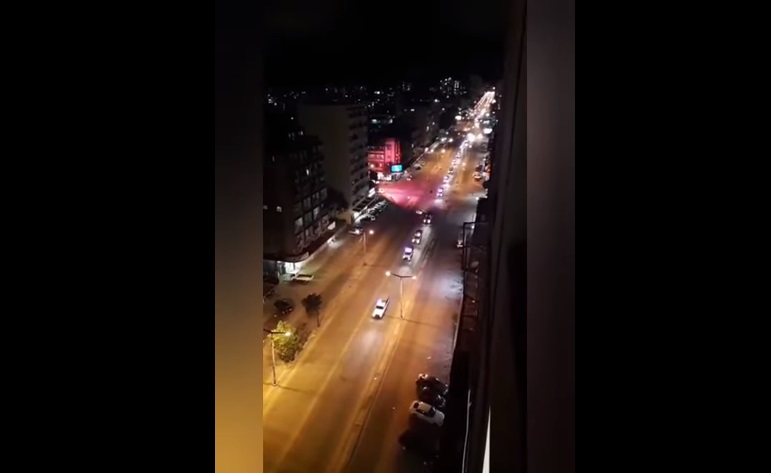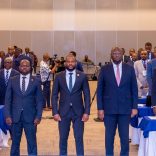Mozambique: Chapo visits Nguni Monarch - AIM | Watch
Mandatory curfew? “Totally unconstitutional” – Renamo

Screen grab; Youtube
- The Mozambican National Resistance (Renamo) has said that the curfew in the Maputo metropolitan area violates the right to free movement, and proposes its a few solutions of its own.
According to the Mozambican National Resistance (Renamo), the nightly curfew from 9:00 p.m. to 4:00 a.m. is “totally unconstitutional”, because it limits fundamental rights such as freedom of movement.
New restrictions in effect since last Friday (05/02) were announced by President Filipe Nyusi after the increase in new cases of Covid-19 in the country.
In an interview with DW Africa, Ivan Mazanga, spokesman for the main opposition party in the city of Maputo, criticises the “excessive performance” of the police and the “illegal arrests” which have taken place during the curfew, which itself was imposed in defiance of the reality of Mozambique’s transport system.
DW Africa: How does Renamo evaluate the Covid-19 prevention policy in Mozambique? Are these measures appropriate?
Ivan Mazanga (IM): The curfew is a totally unconstitutional measure, because the limitation of what are fundamental rights, such as the free movement of people, can only occur within a constitutional framework. The movement of people cannot be limited on the basis of a presidential decree like this.
DW Africa: There have been cases of excessive police violence. How does Renamo see police performance during curfew?
IM: In fact, we have a police force that has become accustomed to excessive and illegal action. It is not the first time. We already saw, under the previous decree, [cases] in which the police illegally seized products traders were selling at their stalls. It is no different now.
People are being beaten and illegally detained. The decree makes no mention of detention. In such cases, there must be a summary judgment from the moment the person is found outside the curfew. We are putting people in cells and, there, they are at risk of contracting the virus or transferring it to other people.
The whole curfew is impossible given the reality in Mozambique. Within the Maputo metropolitan region, the capacity to transport people home by 9:00 p.m. does not exist.
DW Africa: Does the chronic problem of public transport in Maputo make the curfew impracticable?
IM: It’s totally chaotic. It’s impossible. Even in normal times, when there is no obligation to get home before 9:00 p.m.. It is total chaos, and ends up creating a traffic jam out of this world, which itself prevents people from arriving home on time.
We are faced with an impractical measure. What the President of Maputo Municipal Council [Eneas Comiche] said in his announcement is a total aberration, because he said that transport should leave on its last route by 8.10 p.m.. That is totally impossible.
DW Africa: What would Renamo do differently? What is the solution for the current situation in Mozambique?
IM: The pandemic is spreading and, if we are to maintain the curfew, there must be time for people to get home. There must be conditions for transport systems to operate efficiently and effectively.
There is [also] a need to inform the population about the money that the government has received under Covid-19. There are more than US$400 million [around €329 million] that we do not know how they were spent.
We, as Renamo, would spend the money the government got solving people’s problems. People who are experiencing deep poverty, an inoperable transport system and a chaotic health system. There has never been a systemic [solution] within this government to provide what is needed for Mozambicans to get out of the poverty in which they find themselves.













Leave a Reply
Be the First to Comment!
You must be logged in to post a comment.
You must be logged in to post a comment.